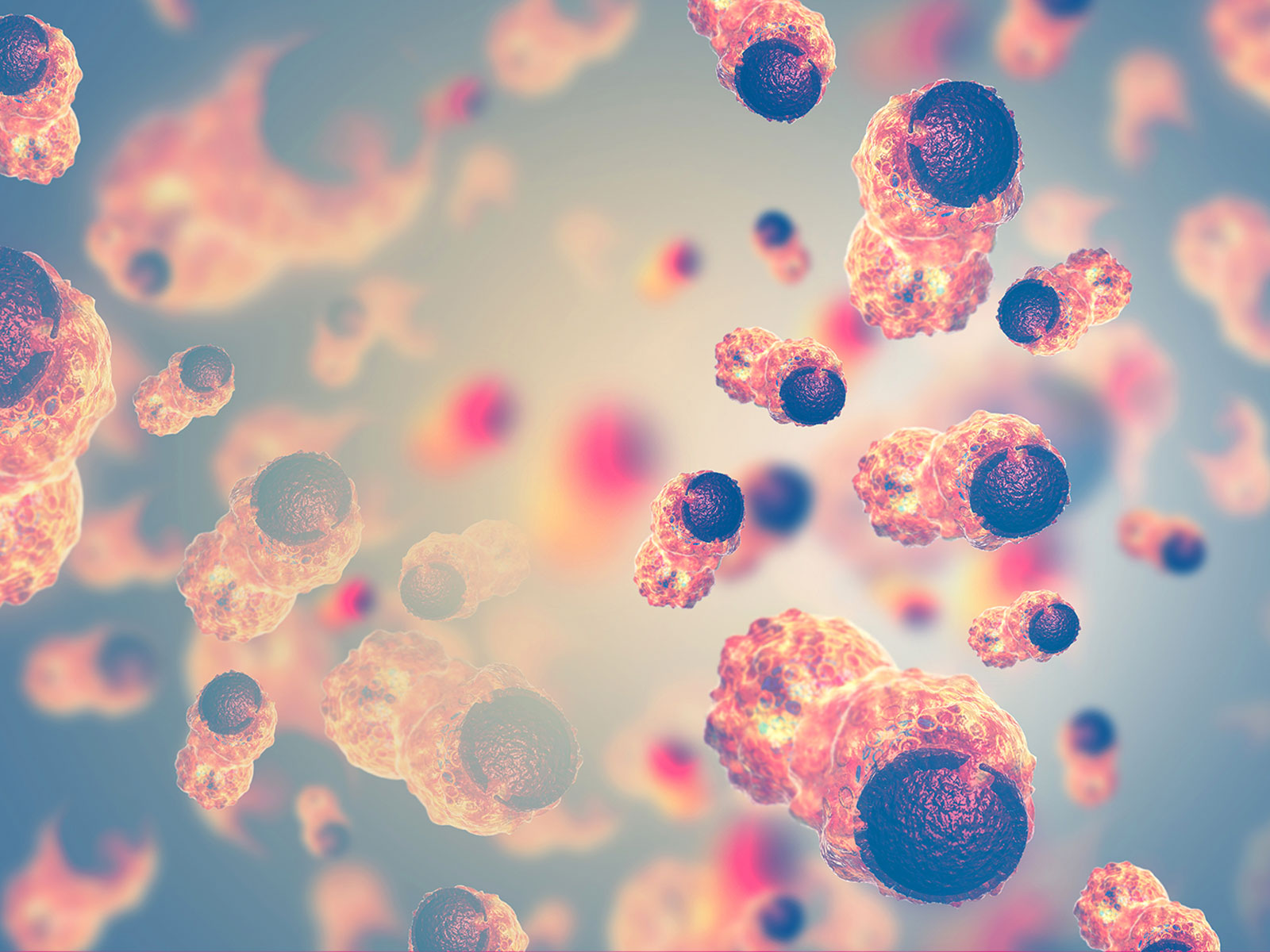Click chemistry combats cancer
"Clicked" compounds with remarkable anti-cancer properties are our ChemSci Pick of the Week, and could lead to the discovery of new classes of drugs.

In tests, selectivity for cancerous cells over non-cancerous cells was greatly improved over conventional chemotherapy drugs such as cisplatin Picture: © Shutterstock
Our battle against cancer is constant, both in the human body and in the lab. The weapons on both fronts are chemicals – the most complicated of which are produced naturally.
Now, a team of researchers from the UK and Czech Republic have designed molecular chains that mimic natural compounds in the lab by assembling themselves into shape. The complexes could then be modified, while remaining stable and resistant to degradation in water – making them easily functionalised and suitable for clinical use in the human body.
In tests, the complexes were found to have remarkable pharmaceutical properties, including the ability to interrupt cancer spreading, increased potency, and selectivity for cancerous cells over non-cancerous cells, which was greatly improved over conventional chemotherapy drugs such as cisplatin.
"We’re developing easy ways of making complex molecules that do the job of the natural defences." said the Chemical Science paper’s corresponding author Peter Scott from University of Warwick.
"The human body has natural defence systems against cancer and other diseases, so you might ask why pharmaceutical companies don’t just make some of those molecules for use as drugs? Well, natural molecules are hard to make, so the drugs would be too expensive. Secondly, because they are natural the body breaks them down and recycles the components before they can do the intended job."
The complexes were formed using the principles of "click chemistry" – that's a way to join small modular units into longer chains, similar to processes in nature. These reactions have many positive attributes, since they occur in one container, are not disturbed by water, generate minimal and inoffensive byproducts, and have high yields and specificity.
This piece of research uses a spiral-shaped group of compounds called helicates as modular units, which self-assembled into structures called metallofoldamers.
Helicates are particularly interesting to biochemists since they can have functional groups added, which can cause them to transform and perform different functions. However, in reality this is very hard to control – and so being able to modify complexes that have already self-assembled makes functionalisation easier and faster.
Notably, in this piece of research, one stable complex was found to suppress metastasis – the mechanism by which cancer spreads throughout the body.
Scott said: "Some of the cancer cells in a tumour are more resistant to drug treatments and are highly aggressive. These cancer stem cells can remain when the bulk of a tumour has been killed, allowing the tumour to grow back.
"The molecules we have discovered are of a new type that perform in both of these areas; affecting the ability of cancer cells to undergo metastasis, and targeting the aggressive stem cells."
The paper’s authors believe that their work opens the door to a new class of treatment.
"We don’t pretend that we can produce new pharmaceuticals in the next few years," Scott said. "We are trying to establish a new class of molecule, very different from the traditional ones used in that industry, that could be used to address serious problems in medicine, such as Alzheimer’s disease, antimicrobial resistance and cancer."
This article is free to read in our open access, flagship journal Chemical Science: Song et al., Chem. Sci., 2019, Advance Article. DOI: 10.1039/C9SC02651G. You can access our 2019 ChemSci Picks in this article collection.